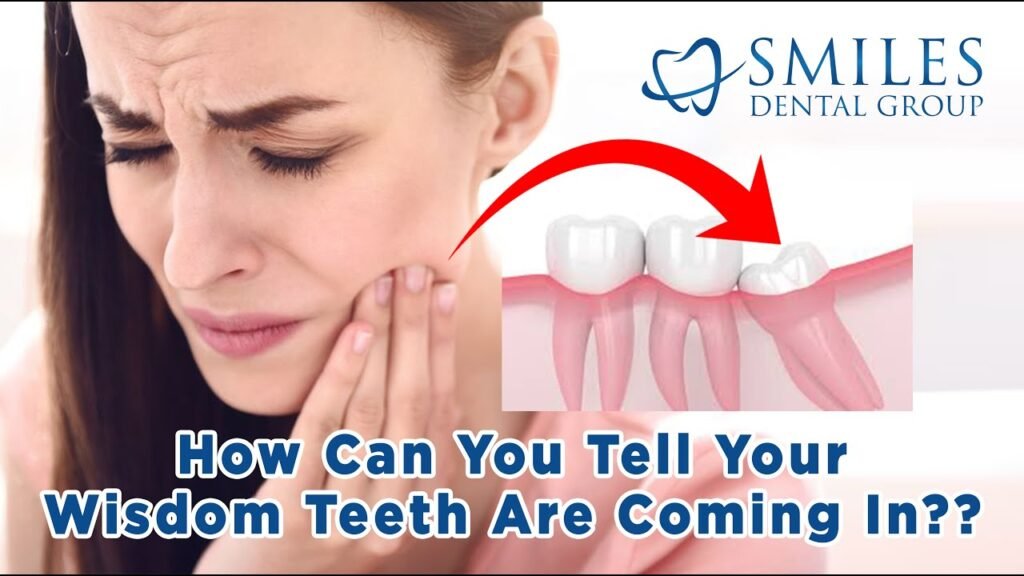Signs of Emerging Wisdom Teeth

Are you experiencing discomfort in the back of your mouth? It could be a sign that your wisdom teeth are starting to come in. These third molars typically emerge in your late teens or early twenties, and can cause pain, swelling, and even crowding of your other teeth. In this article, we will explore the common signs and symptoms of wisdom teeth eruption, as well as what you can do to alleviate any discomfort.
- Pain or discomfort in the back of the mouth
- Swelling or tender gums in the back of the mouth
- Difficulty opening the mouth or chewing due to crowding or pressure in the back of the mouth
How does it feel when wisdom teeth come in?
Feeling discomfort in your gums and experiencing swelling behind your second molars? This could be a sign that your wisdom teeth are coming in. The growth of wisdom teeth can also cause a dull ache at the back of your jaw, which may progress into more noticeable pain for some individuals.
How long does it take for wisdom teeth to come through?
Wisdom teeth, also known as third molars, can vary in the time it takes for them to emerge. Some individuals may experience their wisdom teeth breaking through the gum in just a few weeks, while others may have to wait a few months. Interestingly, there are cases where wisdom teeth do not come in at all. Typically, these teeth start to become visible during the late teenage years or early adulthood for most individuals.
The emergence of wisdom teeth is a unique and individualized process. While some people may see their wisdom teeth come through relatively quickly, others may experience a longer wait. It is important to monitor the development of these teeth and consult with a dental professional if there are any concerns. Remember, the timeline for wisdom teeth to come through can vary, so patience and regular dental check-ups are key in ensuring proper oral health.
What age do wisdom teeth come in?
Your wisdom teeth are your final set of adult teeth to emerge, typically making an appearance between the ages of 17 and 25. However, it's important to note that not everyone will develop wisdom teeth. In some cases, these teeth can cause discomfort, infections, or other oral health complications, necessitating their removal.
If you find yourself experiencing pain or oral health issues in your late teens or early twenties, it may be a sign that your wisdom teeth are coming in. It's crucial to consult with a dentist to determine if extraction is necessary. By addressing any potential problems early on, you can prevent further complications and maintain a healthy smile for years to come.
In conclusion, the age range for the emergence of wisdom teeth is typically between 17 and 25 years old. However, not everyone will develop these teeth, and some individuals may require removal if they cause pain or other oral health issues. Regular dental check-ups can help monitor the growth of wisdom teeth and address any concerns promptly.
Unveiling the Telltale Signs of Wisdom Teeth
Are you experiencing pain and discomfort in the back of your mouth? It could be a sign that your wisdom teeth are starting to emerge. Wisdom teeth, also known as third molars, typically appear in late adolescence or early adulthood. Common telltale signs of wisdom teeth include pain, swelling, and difficulty opening your mouth. If you are experiencing any of these symptoms, it's important to consult with a dentist to determine the best course of action.
In addition to pain and swelling, other signs of emerging wisdom teeth include crowding or shifting of the surrounding teeth, as well as difficulty chewing or biting. It's crucial to address these symptoms promptly to prevent potential complications such as infection or damage to nearby teeth. By recognizing the telltale signs of wisdom teeth and seeking professional guidance, you can ensure proper care and treatment for a healthy, pain-free smile.
Understanding the Symptoms of Emerging Wisdom Teeth
Are you experiencing pain or discomfort at the back of your mouth? It could be a sign that your wisdom teeth are starting to emerge. Common symptoms of emerging wisdom teeth include swollen or tender gums, difficulty opening your mouth, and pain when chewing or biting down. Some people also experience headaches or jaw stiffness. If you are noticing any of these symptoms, it's important to consult with a dentist to determine the best course of action. Understanding the symptoms of emerging wisdom teeth can help you take proactive steps to address any potential issues before they become more serious.
If you are experiencing pain and discomfort in the back of your mouth, along with swelling and difficulty opening your jaw, it may be a sign that your wisdom teeth are coming in. It is important to consult with your dentist to determine the best course of action, whether it be monitoring the teeth as they emerge or considering extraction to prevent potential issues. By staying vigilant and seeking professional guidance, you can ensure that your wisdom teeth come in as smoothly as possible.